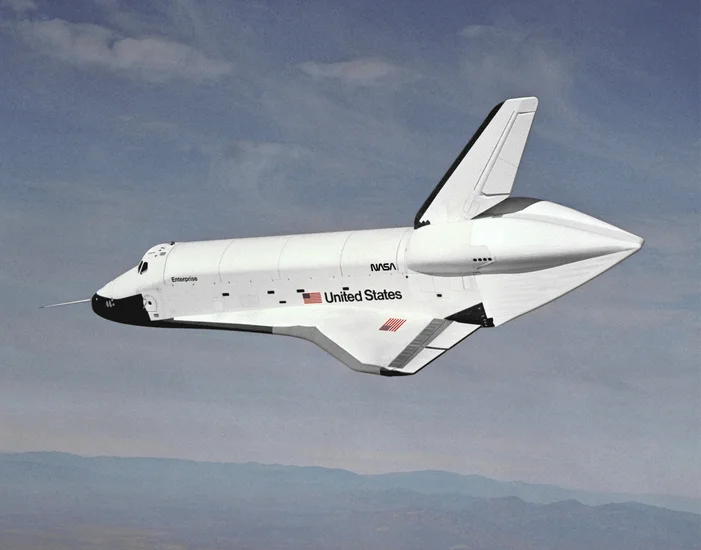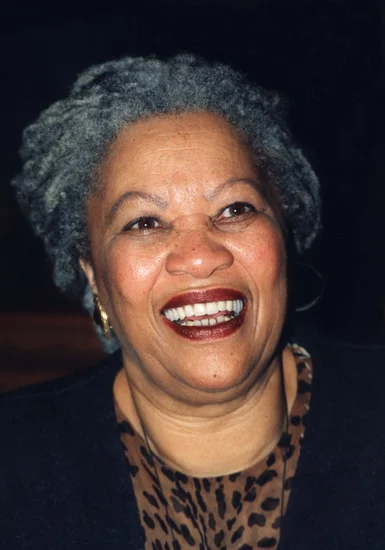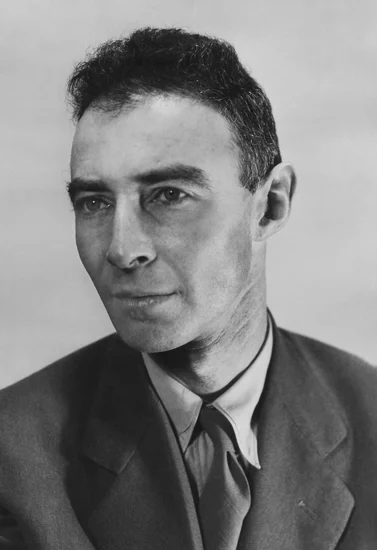February 18 stands as one of history’s most eventful days, witnessing the rise and fall of empires, groundbreaking discoveries, and moments that shaped our modern world across centuries of human achievement.

Politics and Government Events on February 18
1932 – Empire of Japan Creates Manzhouguo State
The Empire of Japan established the independent state of Manzhouguo in occupied Manchuria, installing former Chinese Emperor Aisin Gioro Puyi as Chief Executive. This puppet state marked Japan’s bold expansion into Chinese territory during the early 1930s.
The creation of Manzhouguo directly challenged the Republic of China’s sovereignty over the region. This political maneuver escalated tensions that would eventually contribute to the broader Pacific conflict of World War II.
1965 – The Gambia Achieves Independence
The Gambia gained its independence from the United Kingdom, becoming the smallest sovereign nation in mainland Africa. The peaceful transition marked the end of British colonial rule in the West African territory.
Independence celebrations filled the streets of Banjul as citizens celebrated their newfound sovereignty. The nation would face numerous challenges in establishing stable governance and economic development in the decades that followed.
1970 – Chicago Seven Conspiracy Acquittal
The Chicago Seven defendants were found not guilty of conspiring to incite riots during the 1968 Democratic National Convention. The high-profile trial had captured national attention as a symbol of the era’s political tensions.
The verdict represented a significant victory for anti-war activists and civil liberties advocates. However, several defendants were still convicted on lesser charges, reflecting the complex legal and political dynamics of the time.
2014 – Deadly Clashes in Kyiv, Ukraine

At least 76 people died and hundreds suffered injuries during violent confrontations between riot police and demonstrators in Kyiv. The clashes marked the bloodiest day of the Ukrainian revolution that would reshape the nation’s political landscape.
These events accelerated the downfall of President Viktor Yanukovych’s government within days. The violence galvanized international support for Ukrainian protesters and marked a turning point in the country’s struggle for democratic governance.
Military and Naval History on February 18
1915 – Germany Launches Unrestricted Submarine Warfare
The Imperial German Navy implemented unrestricted submarine warfare in British and Irish waters, escalating World War I’s naval conflict. German U-boats received orders to attack any vessel entering the designated war zone around the British Isles.
This aggressive naval strategy aimed to strangle Britain’s supply lines and force a quick resolution to the war. The policy would prove controversial internationally and contribute to eventual American entry into the conflict.
1942 – Japanese Army Begins Singapore Massacres
The Imperial Japanese Army initiated the systematic extermination of perceived hostile Chinese elements in Singapore during World War II. This brutal campaign targeted civilians suspected of opposing Japanese occupation forces.
The massacres represented one of the darkest chapters of Japanese wartime conduct in Southeast Asia. Thousands of Chinese civilians would lose their lives in the following weeks as occupation forces consolidated control over the strategically vital port city.
1943 – Nazi Arrest of White Rose Members
German authorities arrested members of the White Rose resistance movement, effectively ending one of the most prominent anti-Nazi student organizations. The arrests came after the group had distributed leaflets calling for resistance against the Hitler regime.
The capture of these brave students marked a tragic moment in German resistance history. Their subsequent trials and executions would transform them into powerful symbols of moral courage against totalitarian oppression.
1945 – Allied Operation Encore Begins in Italy
American and Brazilian forces launched Operation Encore in Northern Italy, initiating a successful limited offensive in the Northern Apennines. The operation served as preparation for the broader Allied Spring offensive campaign.
The joint Allied action demonstrated growing coordination between American and Latin American forces. The successful operation helped establish favorable positions for the final push against German defensive lines in northern Italy.
Science and Discovery Milestones on February 18
1930 – Clyde Tombaugh Discovers Pluto
Astronomer Clyde Tombaugh discovered Pluto while analyzing photographic plates taken in January at Lowell Observatory in Arizona. The young astronomer’s meticulous comparison of star field photographs revealed the distant celestial body’s movement.
This groundbreaking discovery expanded humanity’s understanding of the outer solar system for decades. Pluto’s classification would later spark scientific debate, eventually leading to its reclassification as a dwarf planet in 2006.
2021 – NASA’s Perseverance Rover Lands on Mars

NASA’s Perseverance rover successfully landed in Jezero crater on Mars as part of the ambitious Mars 2020 mission. The sophisticated robotic explorer began its search for signs of ancient microbial life on the Red Planet.
The landing marked a technological triumph for space exploration and planetary science. Perseverance’s advanced scientific instruments promised to revolutionize our understanding of Mars’ geological history and potential for past life.
1977 – Space Shuttle Enterprise Takes First Flight

The Space Shuttle Enterprise completed its maiden “flight” carried atop a Boeing 747 aircraft during atmospheric testing. This crucial test verified the shuttle’s aerodynamic properties and approach characteristics for future orbital missions.
The Enterprise test program paved the way for America’s revolutionary reusable spacecraft system. These atmospheric tests provided essential data for the operational shuttle program that would transform space exploration for three decades.
Cultural and Arts Events on February 18
1954 – First Church of Scientology Established

The first Church of Scientology was officially established in Los Angeles, California, founding what would become a controversial religious movement. L. Ron Hubbard’s organization began attracting followers interested in his theories about human consciousness and spiritual development.
The church’s establishment marked the beginning of Scientology’s expansion from a self-help philosophy into an organized religion. The movement would grow internationally while facing ongoing legal challenges and public scrutiny regarding its practices and beliefs.
1977 – Tragedy at Kalakuta Republic
A thousand armed soldiers raided Kalakuta Republic, the commune of Nigerian Afrobeat pioneer Fela Kuti, resulting in the death of Funmilayo Anikulapo Kuti. The violent assault targeted the musician’s compound and his mother, a prominent women’s rights activist.
The raid represented the government’s harsh response to Fela’s political criticism and social activism. This tragic event would influence Fela’s music and political stance for years to come, becoming a symbol of artistic resistance against oppression.
1979 – Historic Daytona 500 Victory

Richard Petty won his then-record sixth Daytona 500 after leaders Donnie Allison and Cale Yarborough crashed on the final lap. The dramatic finish occurred during NASCAR’s first live flag-to-flag television broadcast, introducing millions of viewers to stock car racing.
The televised race transformed NASCAR from a regional sport into a national phenomenon. The spectacular finish and unprecedented television coverage helped establish stock car racing as a major American entertainment spectacle.
Religious and Social Events on February 18
3102 BC – Beginning of Kali Yuga
According to Hindu cosmology, the Kali Yuga began on this date following the death of Krishna, marking the fourth and final age of the current cosmic cycle. This epoch represents a period of spiritual darkness and moral decline in Hindu religious tradition.
The Kali Yuga is characterized by widespread conflict, shortened human lifespans, and diminished spiritual awareness. Hindu scriptures describe this as the most challenging of the four yugas, lasting 432,000 years before cosmic renewal begins.
1946 – Royal Indian Navy Mutiny Erupts
Sailors of the Royal Indian Navy launched a mutiny in Bombay harbour that rapidly spread throughout British India’s provinces. The uprising involved 78 ships, twenty shore establishments, and 20,000 sailors protesting conditions and demanding independence.
The naval mutiny represented one of the largest military uprisings against British rule in India. The revolt significantly weakened British confidence in their ability to maintain control over Indian armed forces during the final years of colonial rule.
1938 – Nanking Safety Zone Reorganization
During the Nanking Massacre, the Nanking Safety Zone International Committee was renamed the “Nanking International Rescue Committee” as the protective zone for refugees collapsed. The committee had struggled to maintain safe areas for Chinese civilians during the Japanese occupation.
The reorganization reflected the deteriorating humanitarian situation in the Chinese capital. International volunteers continued their rescue efforts despite enormous challenges and personal danger from occupying forces.
Business and Economic Events on February 18
1972 – California Invalidates Death Penalty
The California Supreme Court ruled in People v. Anderson that the state’s death penalty was invalid, commuting all death row sentences to life imprisonment. The landmark decision affected dozens of condemned prisoners awaiting execution.
This judicial decision reflected growing national debate over capital punishment’s constitutionality and effectiveness. The ruling would influence similar legal challenges across the United States and reshape criminal justice policy discussions.
2013 – Brussels Airport Diamond Heist

Armed robbers executed a spectacular heist at Brussels Airport, stealing diamonds worth $50 million in one of history’s largest jewelry thefts. The sophisticated operation targeted a shipment being transferred between aircraft and security vehicles.
The perfectly timed robbery exposed serious vulnerabilities in airport security protocols for high-value cargo. The brazen daylight heist shocked the diamond industry and prompted major security overhauls at international airports worldwide.
2001 – FBI Arrests Spy Robert Hanssen
FBI agent Robert Hanssen was arrested for espionage after selling secrets to the Soviet Union for over two decades. His betrayal represented one of the most damaging intelligence breaches in American history.
The arrest concluded a complex counterintelligence operation that had tracked Hanssen’s activities for months. His eventual conviction and life sentence highlighted the ongoing security challenges faced by intelligence agencies during and after the Cold War.
Transportation and Infrastructure on February 18
1911 – First Official Airmail Flight
The first official airmail service began when Henri Pequet, a 23-year-old pilot, delivered 6,500 letters from Allahabad to Naini in British India. The 10-kilometer flight marked aviation’s entry into commercial postal service.
This pioneering flight demonstrated aircraft’s potential for practical communication applications beyond military use. The successful delivery helped establish airmail as a viable service that would revolutionize global communications and commerce.
1930 – Elm Farm Ollie’s Historic Flight
Elm Farm Ollie became the first cow to fly in a fixed-wing aircraft and the first to be milked during flight. This unusual publicity stunt demonstrated aviation’s growing versatility and captured public imagination about flying’s possibilities.
The bovine aviation pioneer’s flight represented the era’s fascination with aviation records and firsts. The event generated significant media attention and highlighted the growing confidence in aircraft safety and reliability.
2018 – Iran Aseman Airlines Flight 3704 Crash

Iran Aseman Airlines Flight 3704 crashed in the Zagros Mountains’ Dena sub-range, killing all 66 people aboard. The tragedy highlighted ongoing aviation safety challenges in Iran’s mountainous terrain and adverse weather conditions.
The crash prompted renewed discussions about aviation safety standards and aircraft maintenance in Iran. International aviation authorities emphasized the importance of updated safety protocols for flights in challenging geographic conditions.
Sports and Recreation on February 18
1906 – Belgian Olympic Committee Formation

Édouard de Laveleye established the Belgian Olympic Committee in Brussels, formally organizing Belgium’s participation in international Olympic competition. The committee’s formation reflected growing European enthusiasm for Pierre de Coubertin’s Olympic revival movement.
Belgium’s Olympic organization would play a crucial role in developing the nation’s athletic programs. The committee’s establishment helped Belgium become a significant contributor to Olympic sports and international athletic competition.
1957 – Execution of Kenyan Rebel Leader
The British colonial government executed Kenyan rebel leader Dedan Kimathi, ending the life of a prominent figure in the Mau Mau uprising. Kimathi had led armed resistance against British colonial rule in Kenya.
His execution marked a significant moment in Kenya’s struggle for independence. Kimathi would later be remembered as a hero of the independence movement and a symbol of resistance against colonial oppression.
1983 – Wah Mee Massacre in Seattle

Thirteen people died and one was seriously injured in the Wah Mee massacre in Seattle, described as the largest robbery-motivated mass murder in U.S. history. The tragedy occurred at a private gambling club in Seattle’s International District.
The massacre shocked the local Asian American community and highlighted ongoing concerns about gambling-related violence. The case would become one of Seattle’s most notorious crimes and prompt discussions about illegal gambling operations.
Notable Births on February 18
1931 – Toni Morrison, Nobel Prize-Winning Author

Toni Morrison was born in Lorain, Ohio, beginning a life that would transform American literature through her powerful explorations of African American experience. Her childhood in the industrial Midwest deeply influenced her later literary works.
Morrison would become the first African American woman to win the Nobel Prize in Literature. Her novels, including “Beloved” and “Song of Solomon,” established her as one of America’s most important literary voices.
1933 – Yoko Ono, Multimedia Artist and Musician

Yoko Ono entered the world in Tokyo, Japan, destined to become a pioneering conceptual artist and peace activist. Her early exposure to both Eastern and Western cultures shaped her innovative artistic vision.
Ono would revolutionize contemporary art through her avant-garde installations and performance pieces. Her marriage to John Lennon and their collaborative peace activism made her one of the most recognizable cultural figures of the 20th century.
1932 – Miloš Forman, Academy Award-Winning Director
Miloš Forman was born in Czechoslovakia, beginning a journey that would take him from Eastern European cinema to Hollywood success. His early experiences under communist rule profoundly influenced his filmmaking perspective.
Forman would win Academy Awards for directing “One Flew Over the Cuckoo’s Nest” and “Amadeus.” His films often explored themes of individual freedom versus institutional control, reflecting his personal experiences with political oppression.
1954 – John Travolta, Hollywood Icon

John Travolta was born in Englewood, New Jersey, into a family that nurtured his early interest in performing arts. His natural charisma and dancing ability would soon capture Hollywood’s attention.
Travolta became a cultural phenomenon through his roles in “Saturday Night Fever” and “Grease.” His career demonstrated remarkable longevity, with successful comebacks and continued relevance across multiple decades of entertainment.
1965 – Dr. Dre, Hip-Hop Producer and Entrepreneur

Andre Young, known professionally as Dr. Dre, was born in Compton, California, in the heart of what would become hip-hop’s West Coast center. His early exposure to the area’s musical culture shaped his revolutionary production style.
Dr. Dre would become one of hip-hop’s most influential producers and successful entrepreneurs. His work with N.W.A., solo career, and Beats Electronics empire established him as a transformative figure in music and business.
1967 – Roberto Baggio, Italian Football Legend

Roberto Baggio was born in Caldogno, Italy, beginning a football career that would captivate fans worldwide. His exceptional technical skills and creative playmaking ability distinguished him from his contemporaries.
Baggio became one of Italy’s greatest football players, winning the Ballon d’Or in 1993. His performances in multiple World Cups and his elegant playing style made him a beloved figure in international football.
1968 – Molly Ringwald, Brat Pack Star

Molly Ringwald was born in Roseville, California, destined to become the defining face of 1980s teen cinema. Her natural acting ability and relatable screen presence made her perfect for John Hughes’ coming-of-age films.
Ringwald became a cultural icon through her roles in “The Breakfast Club,” “Sixteen Candles,” and “Pretty in Pink.” Her performances captured the essence of teenage experience and influenced an entire generation of young Americans.
1994 – J-Hope, K-Pop Global Ambassador

Jung Hoseok, known professionally as J-Hope, was born in Gwangju, South Korea, beginning a journey that would help spread Korean culture worldwide. His exceptional dancing and rapping skills set him apart from an early age.
J-Hope became a vital member of BTS, the world’s most successful K-pop group. His contributions to the group’s music and his solo work have helped establish Korean pop music as a global cultural phenomenon.
Notable Deaths on February 18
1902 – Charles Lewis Tiffany, Jewelry Empire Founder

Charles Lewis Tiffany, the founder of the legendary jewelry company Tiffany & Co., passed away after building one of America’s most prestigious luxury brands. His innovative marketing and commitment to quality established new standards for American jewelry retail.
Tiffany transformed American jewelry from simple craftsmanship into sophisticated luxury goods. His company’s distinctive blue boxes became symbols of elegance and quality that continue to define luxury jewelry retail worldwide.
1967 – J. Robert Oppenheimer, Atomic Bomb Architect

J. Robert Oppenheimer, the brilliant physicist who led the Manhattan Project’s development of the atomic bomb, died after a complex career marked by scientific triumph and political controversy. His leadership of Los Alamos Laboratory during World War II changed human history.
Oppenheimer’s later opposition to nuclear weapons development led to his security clearance being revoked during the McCarthy era. His tragic fall from grace highlighted the moral complexities faced by scientists in the atomic age.
2001 – Dale Earnhardt, NASCAR Champion

Dale Earnhardt, the seven-time NASCAR Cup Series champion known as “The Intimidator,” died in a crash during the final lap of the Daytona 500. His aggressive driving style and competitive spirit had made him one of stock car racing’s most beloved figures.
Earnhardt’s death shocked the racing world and prompted major safety improvements in NASCAR. His legacy as one of the sport’s greatest drivers continues to influence racing culture and safety standards.
2001 – Balthus, Mysterious Master Painter

Balthus, the enigmatic Polish-Swiss painter known for his controversial figurative works, passed away after a career that challenged artistic conventions. His mysterious personality and refusal to explain his art added to his legendary status.
Balthus created paintings that combined classical technique with provocative subject matter. His work influenced generations of artists while maintaining an air of mystery that made him one of the 20th century’s most intriguing artistic figures.
Holidays and Observances on February 18
Independence Day in The Gambia
The Gambia celebrates Independence Day on February 18, commemorating the nation’s freedom from British colonial rule in 1965. Citizens throughout the West African nation participate in patriotic ceremonies and cultural celebrations.
The holiday represents the culmination of peaceful negotiations that led to Gambian sovereignty. Independence Day festivities include parades, traditional music performances, and speeches celebrating the nation’s achievements and future aspirations.
National Democracy Day in Nepal
Nepal observes National Democracy Day on February 18, celebrating the 1951 overthrow of the Rana dynasty that had controlled the kingdom for over a century. The day commemorates the restoration of royal power and the beginning of democratic reforms.
This historic transition marked Nepal’s first steps toward modernization and democratic governance. The holiday celebrates the courage of those who fought against autocratic rule and established foundations for Nepal’s democratic development.
Dialect Day in Amami Islands, Japan
The Amami Islands of Japan celebrate Dialect Day on February 18, promoting the preservation of local Amami languages and cultural traditions. The observance emphasizes the importance of maintaining linguistic diversity in modern Japan.
This regional celebration highlights the unique cultural heritage of the Amami Islands. Educational activities and cultural performances help younger generations appreciate their linguistic heritage and traditional customs.
